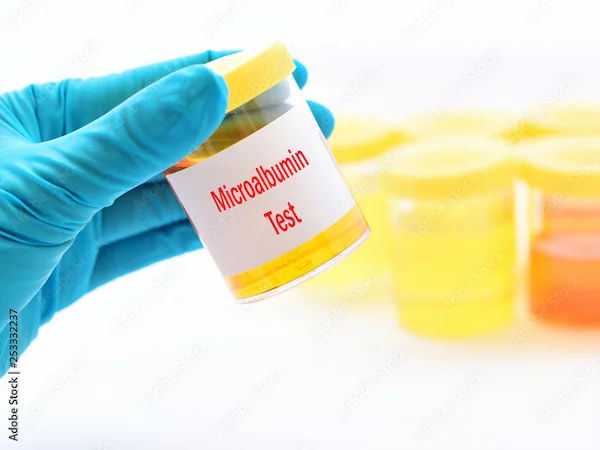Hematuria Diagnosis & Prevention
Discover the causes and diagnosis of hematuria (blood in urine), plus practical prevention tips and when to consult a doctor.

Written by
Last updated on 3rd Jul, 2025

Hematuria: Diagnosis and Prevention
If you’ve noticed blood in your urine, it’s completely understandable to feel worried or unsure about what it means for your health. While hematuria—blood in the urine—can sometimes be a sign of something serious, it can also be caused by minor issues that are treatable. The important thing is to understand what might be behind it, how doctors can help diagnose the cause, and what steps you can take to protect your urinary health moving forward. In this article, we will delve into what hematuria is, the common causes, diagnostic tests, and practical prevention strategies to help you avoid it in the future.
What Is Hematuria?
Hematuria refers to the presence of blood in the urine. It is not a disease itself but a symptom of an underlying condition. It can be classified into two types:
Gross Hematuria: This is when the blood is visible to the naked eye. The urine may appear pink, red, or tea-coloured due to the blood.
Microscopic Hematuria: In this case, blood is not visible to the naked eye but can be detected under a microscope during a urinalysis.
Common Causes of Hematuria
The presence of blood in urine can result from a variety of conditions. Some are mild and self-limiting, while others can be serious and require immediate medical attention.
Urinary Tract Infections (UTIs): Urinary tract infections, which affect any part of the urinary system (kidneys, bladder, ureters, and urethra), are one of the most common causes of hematuria. UTIs are typically accompanied by symptoms like a burning sensation during urination, increased frequency of urination, and lower abdominal pain. Blood in the urine often occurs when the infection causes inflammation and irritation in the bladder or urethra.
Kidney Stones: Kidney stones, hard deposits of minerals and salts that form in the kidneys, can cause hematuria when they irritate or damage the lining of the urinary tract. The pain associated with kidney stones is often severe, especially if the stone moves or blocks the urinary flow. The blood is usually microscopic, but if the stone causes significant damage, gross hematuria can also occur.
Bladder or Kidney Cancer: Both bladder and kidney cancers can cause hematuria, often without any pain in the early stages. Hematuria caused by cancer may be intermittent and painless, which is why it is crucial to seek medical advice if you notice blood in your urine, particularly if you are over 50 or have a history of smoking or exposure to chemicals.
Trauma or Injury: Injuries to the kidneys, bladder, or other parts of the urinary tract due to accidents, sports, or surgery can result in hematuria. Trauma causes blood vessels in the urinary system to rupture, leading to blood in the urine. In such cases, blood is usually visible in the urine, along with pain and possible swelling.
Enlarged Prostate (Benign Prostatic Hyperplasia): In men, an enlarged prostate can block the flow of urine and lead to hematuria. The condition, known as benign prostatic hyperplasia (BPH), typically occurs in older men and may be accompanied by difficulty in urination, a weak stream, or a frequent need to urinate at night.
Other Medical Conditions
Glomerulonephritis: This is inflammation of the kidney’s filtering units and can cause both microscopic and gross hematuria.
Bleeding Disorders: Conditions like haemophilia or platelet disorders can cause excessive bleeding, including hematuria.
Medications: Some medications, such as blood thinners or certain antibiotics, can cause bleeding in the urinary tract, leading to hematuria.
How Do Doctors Diagnose Hematuria?
If you notice blood in your urine, it’s important to visit a doctor. Here’s how doctors figure out what’s causing it:
Medical History and Physical Exam: The first step is a thorough medical history and physical examination. The healthcare provider will inquire about the patient’s symptoms, medical history, medications, and any recent physical activities or injuries.
Urine Test (Urinalysis): A urinalysis is a crucial diagnostic tool for detecting hematuria. This test involves examining a urine sample under a microscope to identify the presence of red blood cells. Additional tests may be conducted to identify signs of infection, abnormal cells, or elevated protein levels.
Urine Culture: If an infection is suspected, a urine culture may be performed to identify the specific bacteria causing the infection.
Imaging Tests: Imaging studies, such as an ultrasound, CT scan, or MRI, are often used to visualise the kidneys, ureters, and bladder. These tests can help identify structural abnormalities, tumours, kidney stones, or other potential causes of hematuria.
Cystoscopy: A cystoscopy involves inserting a thin, flexible tube with a camera (cystoscope) into the bladder through the urethra. This procedure allows the healthcare provider to directly visualise the interior of the bladder and urethra to identify any abnormalities, such as tumours, stones, or inflammation.
Blood Tests: Blood tests may also be ordered to evaluate kidney function, check for signs of infection, or assess for conditions affecting blood clotting. These tests provide additional insight into the overall health of the kidneys and urinary system, helping to identify any underlying medical conditions contributing to hematuria.
Consult Top Urologists
Preventing Hematuria
Prevention strategies for hematuria focus on addressing the underlying causes and maintaining overall urinary tract health. Here are some practical tips for preventing hematuria:
Stay Hydrated: One of the simplest and most effective ways to prevent hematuria, particularly caused by kidney stones or infections, is to stay well-hydrated. Drinking plenty of water helps flush toxins and bacteria from the urinary system, reducing the risk of stone formation and urinary tract infections. Aim for at least 8 glasses of water a day or more if you are physically active.
Practice Good Hygiene: Good hygiene, especially for women, can significantly reduce the risk of urinary tract infections, which are a common cause of hematuria. Wiping from front to back after using the toilet and avoiding irritants like harsh soaps or scented products can help prevent UTIs.
Eat a Kidney-Friendly Diet: Certain dietary changes can help reduce the risk of kidney stones, a frequent cause of hematuria. Reducing salt intake, limiting foods high in oxalates (such as spinach and chocolate), and maintaining a balanced diet can prevent stone formation. Eating foods rich in fibre and calcium may also support overall kidney health.
Avoid Smoking and Limit Alcohol Consumption: Smoking is a significant risk factor for bladder and kidney cancer. Limiting alcohol consumption can also help maintain overall health and reduce the strain on your kidneys and urinary tract.
Regular Checkups and Screenings: For people with risk factors like a family history of kidney disease or cancer, regular medical checkups are vital for early detection and prevention. Screenings for kidney function, prostate health (for men), and cancer can help catch potential issues before they develop into more serious conditions.
Exercise and Maintain a Healthy Weight: Regular physical activity and maintaining a healthy weight help reduce the risk of developing conditions like diabetes, hypertension, and kidney disease—factors that can contribute to hematuria.
Conclusion
Hematuria is a symptom that should never be overlooked, as it can be a sign of serious health conditions like urinary tract infections, kidney stones, or even cancer. Early detection through appropriate diagnostic tests is crucial for timely treatment. While some causes of hematuria are beyond our control, practising healthy habits like staying hydrated, maintaining good hygiene, and having regular medical checkups can help prevent many of the common conditions that lead to blood in the urine.
If you notice blood in your urine or experience any concerning symptoms, consult a healthcare provider for a thorough evaluation and personalised treatment plan.
Consult Top Urologists
Consult Top Urologists

Dr Anupam Sharma
Urologist
18 Years • MBBS, MS(Gen Surgery), DNB (Urology)
Delhi
Apollo Hospitals Indraprastha, Delhi

Dr. Dhruv B. Patel
Urologist
12 Years • MBBS, MS, DrNB (Urology - IKDRC, Ahmedabad)
Ahmedabad
Apollo Hospitals Gandhinagar, Ahmedabad

Dr. Sujeet Shekhar Sinha
Urologist
4 Years • MBBS (AFMC), MS (Gen Surgery- Gold Medalist KGMU, LUCKNOW), MCh (Urology)
Lucknow
Apollomedics Super Speciality Hospital, Lucknow
(75+ Patients)

Dr. V Kamaraj
Urologist
5 Years • MBBS, MS, MCh
Chennai
Apollo Speciality Hospitals Vanagaram, Chennai

Dr Karthik Maripeddi
Urologist
13 Years • MBBS MS FMAS MCh URO(OSM)
Hyderguda
Apollo Hospitals Hyderguda, Hyderguda
Consult Top Urologists

Dr Anupam Sharma
Urologist
18 Years • MBBS, MS(Gen Surgery), DNB (Urology)
Delhi
Apollo Hospitals Indraprastha, Delhi

Dr. Dhruv B. Patel
Urologist
12 Years • MBBS, MS, DrNB (Urology - IKDRC, Ahmedabad)
Ahmedabad
Apollo Hospitals Gandhinagar, Ahmedabad

Dr. Sujeet Shekhar Sinha
Urologist
4 Years • MBBS (AFMC), MS (Gen Surgery- Gold Medalist KGMU, LUCKNOW), MCh (Urology)
Lucknow
Apollomedics Super Speciality Hospital, Lucknow
(75+ Patients)

Dr. V Kamaraj
Urologist
5 Years • MBBS, MS, MCh
Chennai
Apollo Speciality Hospitals Vanagaram, Chennai

Dr Karthik Maripeddi
Urologist
13 Years • MBBS MS FMAS MCh URO(OSM)
Hyderguda
Apollo Hospitals Hyderguda, Hyderguda


